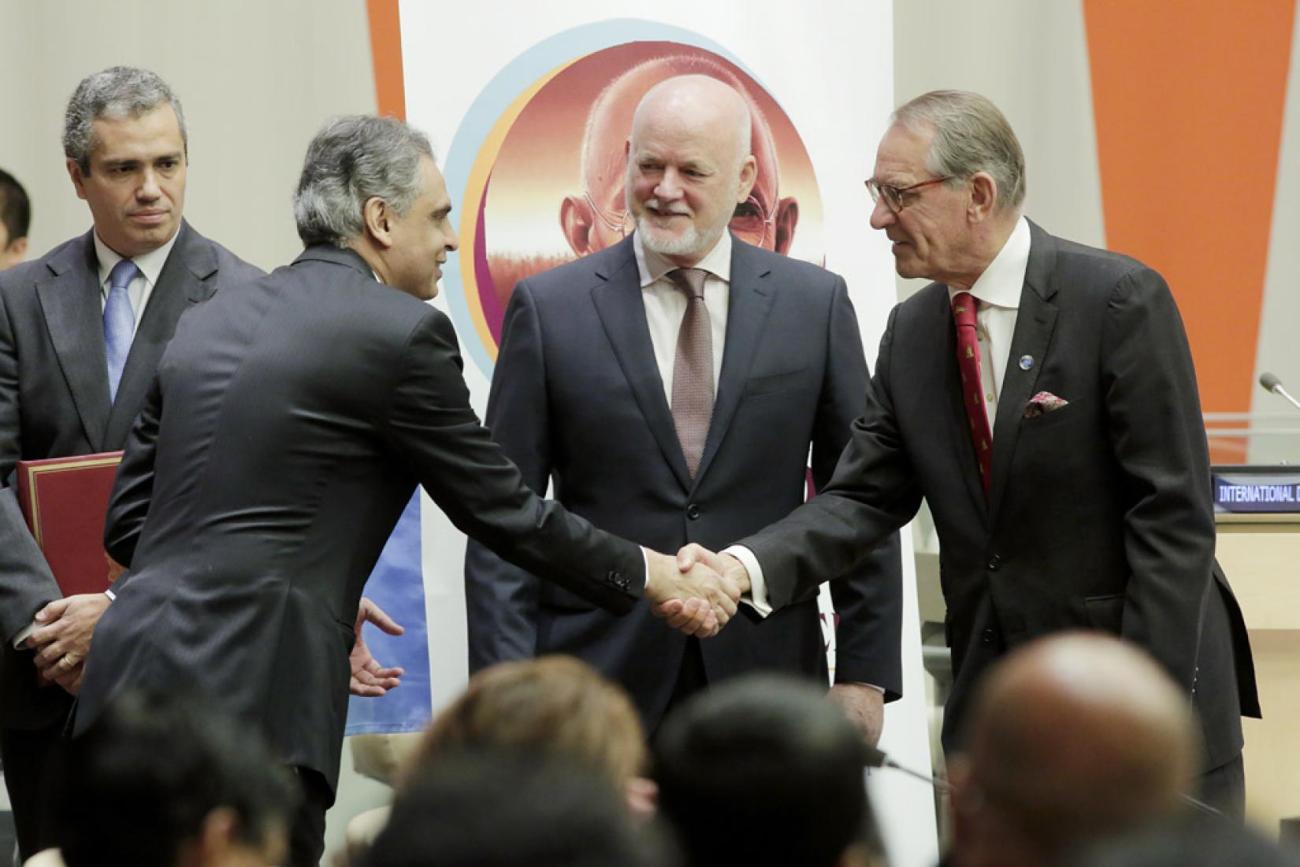Is there a need for a Paris agreement between governments and citizens?

Shyam Saran: We need a Citizens’ Charter on Climate Change to realise the promise of Paris.
Now that the United States, under President Donald Trump, has walked out of the Paris Agreement on climate change, the role of civil society, communities, businesses and industry, and individual citizens, in dealing with the challenge of climate change has become even more critical. All non-governmental constituencies must not only use the instrument of public opinion to persuade governments to do more, but also take the lead themselves and serve as role models. Climate change is integrally linked to the lifestyle choices we make as individuals and families. These, in turn, reflect our deeply ingrained value systems.
Modern societies treat nature as a dark force to be conquered and subjugated through technology to serve our material needs and aspirations. The products we design, produce and consume reflect our preference for disposability over durability. We rate novelty higher than reliability. Our consumer markets are based on use and discard. Our production processes are linear and once-through, using raw materials to produce finished goods with huge waste inherent in the system. Affluence is associated with excess. It is this value system and mindset that lie at the heart of the climate change challenge. As citizens, we must be concerned about the threat posed by climate change to present and future generations and recognise the need to adopt ecologically sustainable lifestyles.
The concept of affluence itself must change. Material comforts are desirable, but to have a green earth to walk upon, fresh air to breathe and clean water to drink should be valued as indispensable to any concept of well-being. So what do we need to do as citizens? We need a Citizens’ Charter on Climate Change in which participants voluntarily pledge practical actions for their part as citizens, families, localities and civil society groups, to promote a more sustainable lifestyle. These could include the following representative examples:
- Adopt a vegetarian diet, which can significantly reduce the quantity of resources required to sustain expanding non-vegetarian consumption in the form of beef, mutton and poultry. Some people have gone further and become “vegans”, rejecting even dairy products. There could be a range to choose from, for example, eating meat only once a week to begin with. The idea is to involve citizens actively in promoting ecological security through the frugal use of resources.
- Our world is in danger of being choked with plastic waste. Our oceans are becoming a toxic pool, thanks to the plastic and other hazardous waste we are constantly dumping into them. In our own daily lives, could we pledge to dispense with mineral water dispensed in plastic bottles and use reusable steel drinking bottles instead? Could we dispense with plastic shopping bags and carry our own cloth or paper bags instead? Could we persuade governments to set up water ATMs to dispense clean drinking water at affordable prices so that there is no need felt to buy bottled mineral water?
- There are now biodegradable party plates, bamboo plates, glasses and even edible cutlery available in the market for parties and public events. Could we pledge to use them for our family and social events and demand that the government do the same for public events?
- We have the right to mobility but not necessarily to own and use private vehicles. In our digital world it is possible to operate car pools and share transport services. We should demand efficient and affordable public transportation from governments and accept that financing such projects may need heavy, even punitive, taxation on private transportation. We should pledge to use bicycles -- but governments must provide safe cycle lanes.
- Businesses can make significant contributions by adopting zero waste, power positive and water positive production and distribution processes. This would be possible through the adoption of renewables and recycling and pledging never to dump toxic effluents into our rivers and toxic gases into the air. As citizens we can promote such change in corporate behaviour through informed choices we make as consumers of products businesses put on the market.
These actions could be organised in small communities and localities; they can be on a national scale and in our interconnected world, even across borders. Witness how in the US, civil society groups, states such as California and several socially aware businesses, are rejecting what President Trump has done and are going ahead with even more vigorous efforts at their respective levels to realise the promise of Paris. The notion of ecological sustainability is deeply embedded in Indian culture. Traditionally, nature is revered as a mother, a source of nurture and not a force to be harnessed for our material comfort alone. Our culture enjoins upon us to never extract from nature more than its capacity to regenerate. This is the perspective through which we must look upon the bountiful but fragile planet that is our only home in the universe.
Shyam Saran is a former foreign secretary, Government of India. He served as the Prime Minister’s Special Envoy for Climate Change from 2007 to 2010. He is currently member, governing board of Centre for Policy Research, and a trustee of WWF India. Views expressed are personal and do not represent the views of the United Nations or any of its agencies.

















